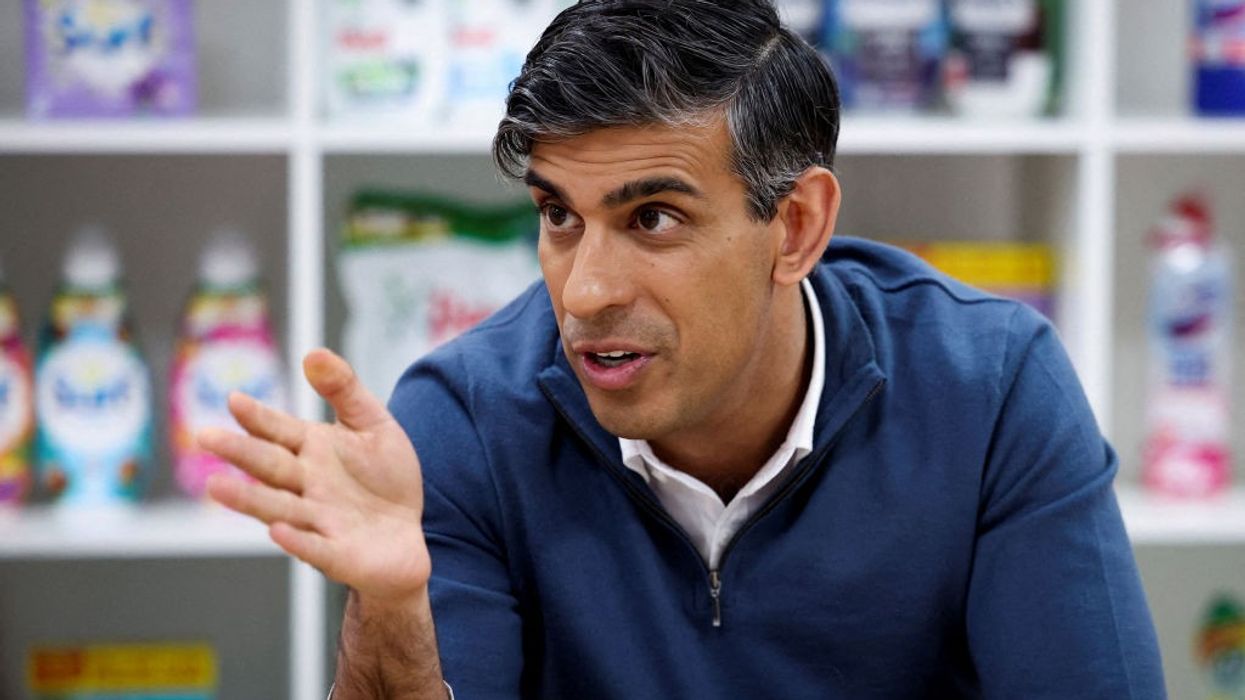PRIME MINISTER Rishi Sunak kicked off his campaign with a distribution centre visit in eastern England in the early hours of Tuesday (2), the penultimate day of campaigning ahead of polling day on Thursday (4), urging voters to not "do something they regret".
All pre-election opinion polls indicate a strong majority for the Labour party, forcing the incumbent Sunak-led Tories on the back foot to caution voters against handing a "supermajority" to the Keir Starmer-led Labour.
Both main party leaders will be using the final two days of campaigning to zigzag as many parts of the UK as possible, especially where they hope there are still some undecided voters to win over.
"Once you make that decision on Thursday, there's no going back. Don't do something you might regret," posted Sunak on X, driving home his central message that a Labour-led government would raise taxes for everyone in the country.
"You have 48 hours to put the brakes on a Labour supermajority that will put up your taxes," he said.
Speaking to the BBC, he said: "My point is if the polls are to be believed and Labour win a big majority, they will be unchecked and unaccountable to people and that will give them licence to put up everyone's taxes and make us a soft touch on migration when it comes to the entire European continent.
"I don't want people to sleepwalk into that. So, I'm fighting very hard for every vote. I want to continue in this job so I can cut people's taxes, protect their pensions and secure our borders," the 44-year-old British Indian leader said.
It came as the BBC's polling expert Sir John Curtice declared there is more chance of lightning striking twice in the same place than there is of Sunak remaining prime minister come Friday (5).
"That's his view, that's not going to stop me from working as hard as I can over these final few days. I'll be out until the last moment of this campaign," reacted a defiant Sunak.
Meanwhile, Starmer has been keen to highlight that "every single vote counts" to counter any chance of apathy among the voters who may feel the election was a done deal in favour of his party.
"There's tough yards ahead in terms of the inheritance if we come in to serve the country, almost everything is broken, nothing is working, nothing is better than it was 14 years ago. We need a strong mandate for that," he said.
In an interview with The Times, the 61-year-old Labour leader sought to make a virtue out of Tory warnings of a "Labour supermajority" as he emphasised the need for a strong mandate to "seriously change" the country so that people would have "more money in their pockets".
Starmer, who hopes to be in 10 Downing Street by Friday evening, stressed that a bigger majority "means we can roll up our sleeves and get on with the change we need".
The Labour Party has set out its vision as being focused on creating more growth, driven by major planning reforms and skill overhauls and has denied plans to raise taxes across the board.
"The most important thing is growing the economy and wealth creation. I do think that's been the Achilles' heel for 13 years now. You can talk about public services but if you haven't got your economy working then you can't do that. If you haven't settled the planning, the infrastructure challenges, then you can't get your economy going," stressed Starmer.
Both party leaders will use the last hours of campaigning to drive home their respective messages before polling booths open across the country at 7am on Thursday.
After they close at 10pm, Sunak and Starmer will eagerly await results from the UK Parliament's 650 constituencies needing 326 for a majority. Meanwhile, the traditional election night exit poll at 10pm will give them and the country a snapshot of what to expect nationally.
(PTI)





